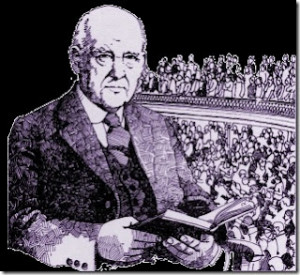 [Adapted from Everyone’s a Theologian by R.C. Sproul]
[Adapted from Everyone’s a Theologian by R.C. Sproul]
Christianity is not based on speculative philosophy; it is a revealed faith. The basic claim of the Christian faith is that the truth we embrace comes to us from God Himself.
Christianity makes a distinction between general revelation (in creation) and special revelation (in the Bible).
God is the Source of all truth
God is the source of all truth, not only religious truth. We as creatures could not know anything were it not that God has made knowledge possible for us. Even those with perfect vision, if they were placed in a room filled with beautiful objects, could not see any of the beauty, if the room were immersed in darkness. So, when scientists seek to discern truth in their laboratories while belittling us for our claim to trust in revelation for the content of our religious faith, we can simply point out that they could learn nothing from a test tube were it not for the Creator’s revelation and His gift of the ability to learn through a study of nature.
General Revelation
God’s general revelation is called general because it is given to every human being in the entire world. It is given in and through nature and through the human conscience (which is why it is sometimes called “natural revelation”). “The heavens declare the glory of God” (Psalm 19:1). God has given all human beings a sense of right and wrong (Rom. 2:14-15). General revelation does not reveal God’s work as Redeemer, only His work as Creator. One cannot study a sunset and see the heavens declaring God’s plan of salvation; which is precisely why God’s special revelation in the Bible is necessary for salvation.
Generally speaking, according to Romans 1:18-21, the knowledge that human beings gain through general revelation is knowledge of God’s “invisible attributes,” specifically, “His eternal power and Godhead.” This revelation is plain. But it is our nature as sinners to suppress that revelation in unrighteousness.
Unbelievers attempt to excuse their refusal to come to God by claiming that God has failed to provide sufficient proof of His existence, but the Bible is clear that God’s revelation of Himself in nature and in the human conscience provides us with true and clear knowledge of His character. Our sinful suppression of that revelation does not erase the knowledge of God that He has given us through nature and in our hearts. Therefore, everyone needs the gospel, because everyone has been judged guilty – not for rejecting Jesus, of whom many have never heard, but rejecting God the Father, who has revealed Himself plainly to every human being.
Special Revelation
Special Revelation is found (ever since the completion of the Canon) only in the Bible.
In OT times, God spoke to people directly on occasion: through dreams, signs, the casting of lots, and theophany, which is a visible manifestation of the invisible God. The best-known theophany is the burning bush; also the pillar of cloud and the pillar of fire. Continue reading


